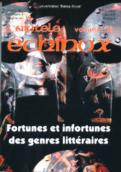Fortunes et malheurs du roman d’apprentissage
The apprenticeship novel in the literary tradition of Europe
Author(s): Mario DomenichelliSubject(s): Literary Texts
Published by: Universitatea Babeş-Bolyai
Keywords: Novel; Apprenticeship; Bourgeoisie; Epos; Social Classes.
Summary/Abstract: The paper intends to look for the origins and define the development of the apprenticeship novel, considered as a sort of European “metagenre” from the Bildungsromane told in the chivalry romances of the Middle Ages to those in the novels of the Picaresque tradition. Goethe’s Wilhelm Meisters Lehrjahre is the turning point in this story, and it is by no means accidental that in Hegel’s Aesthetics Goethe’s Lehrjahre is considered as the exemplum of the new bourgeois epos towards the accomplishment of philosophical individualism as the ideal of the new class in power. The itinerarium vitae shaped in the apprenticeship novel can of course lead the protagonists to a kind of dead end and a sense of loss. The life-apprentice, that is, can lose his/ her life-path, and what the itinerarium should lead to: identity. This is what often happens in the nineteenth century and increasingly in contemporary developments of the apprenticeship novel as the novel of desengaño.
Journal: Caietele Echinox
- Issue Year: 2009
- Issue No: 16
- Page Range: 146-155
- Page Count: 10
- Language: French
- Content File-PDF

